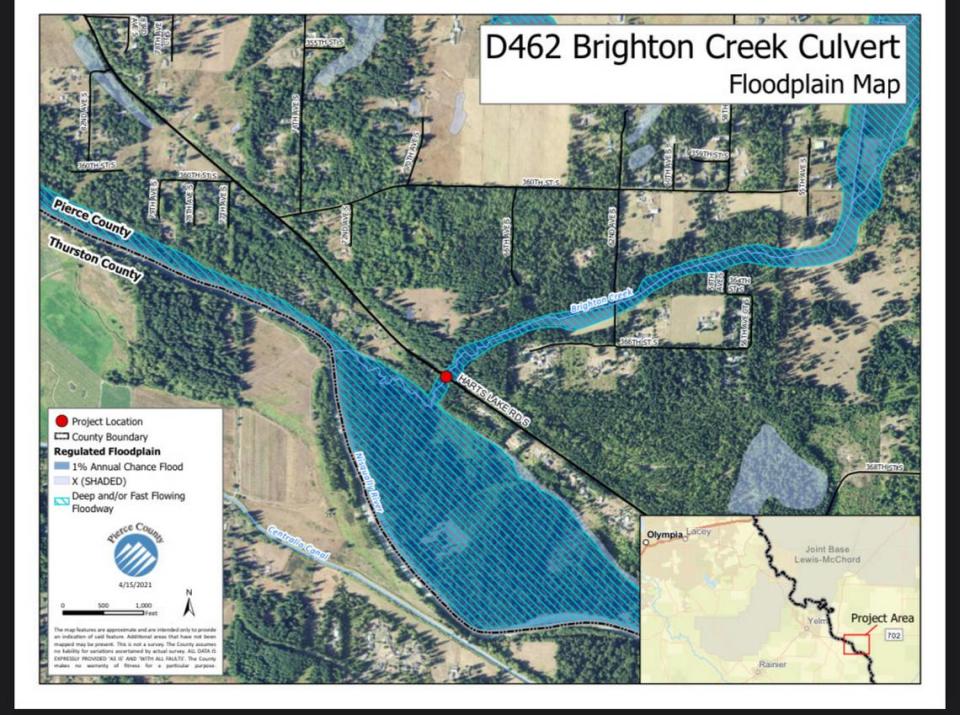Squaxin tribe gets federal grant to remove 5th Avenue Dam. Nisqually project funded too
Two local tribes are receiving more than $12 million in federal grants to remove fish passage barriers, including Olympia’s Fifth Avenue Dam.
The two local projects are among nine projects the National Oceanic and Atmospheric Administration is funding in Washington state with a total of $39.4 million. The goal is to remove fish passage barriers such as small dams and culverts, open salmon and steelhead migration routes, and allow more salmon to return to their natural spawning grounds.
The Squaxin Island Tribe is receiving $6.4 million to help remove the Fifth Avenue Dam across the mouth of the Deschutes River, draining the man-made Capitol Lake and restoring the Deschutes Estuary.
According to NOAA, restoring the estuary will help recover habitat for threatened Puget Sound Chinook, and support tribal capacity to expand their barrier removal efforts and engage in salmon recovery planning in South Puget Sound.
The Nisqually Indian Tribe is receiving $5.8 million to remove and replace a culvert that is completely blocking fish passage on Brighton Creek, a tributary of the Nisqually River, and to replace the Harts Lake Road South culvert. The old culvert will be replaced with a new channel-spanning culvert southeast of McKenna on the Pierce County side of the river that will allow threatened Puget Sound steelhead and Chinook salmon to reach high-quality habitat.
The project will include a wildlife crossing and help reduce flood risks and provide opportunities for further native plant restoration, NOAA says.
The funds come from the NOAA Fish Passage through Barrier Removal grant program, funded by the Bipartisan Infrastructure Law and the Inflation Reduction Act.
“Habitat restoration works, and these projects will help boost the salmon and steelhead runs our tribes and our regional economy depend on,” said U.S. Sen. Maria Cantwell in a news release. “These grants will make lasting and meaningful improvements to habitat, including for Puget Sound Chinook stocks that orcas need to thrive. ...”
Cantwell and U.S. Sen. Patty Murray say these bills make up the largest investment into the climate crisis in American history and include record funding for salmon recovery and fish habitats.
“In Washington state, our fish drive local economies and are foundational to the culture of the Pacific Northwest —and the record investments in fish passage projects we secured under President Biden will make a big difference across our state,” Murray said in a statement. “This influx of federal funding will be key to saving precious species, including our salmon, and restoring wetlands and other vital habitats. ...”
All nine projects in Washington state will be led by or completed in partnership with tribes. Nationally, NOAA awarded $240 million for 46 passage projects, and 40% of the recommended projects were led or supported by tribes.
The new grants build on the $166 million awarded in 2022 in the first round of funding. There will be one more round of NOAA fish passage barrier removal projects to come under the BIL.

Officials meet at Capitol Lake to commemorate step in restoring Deschutes Estuary
Design work begins for a Deschutes Estuary that can support salmon and orcas | Opinion
Port of Olympia commission votes 2-1 to formally support state’s plan for Capitol Lake

